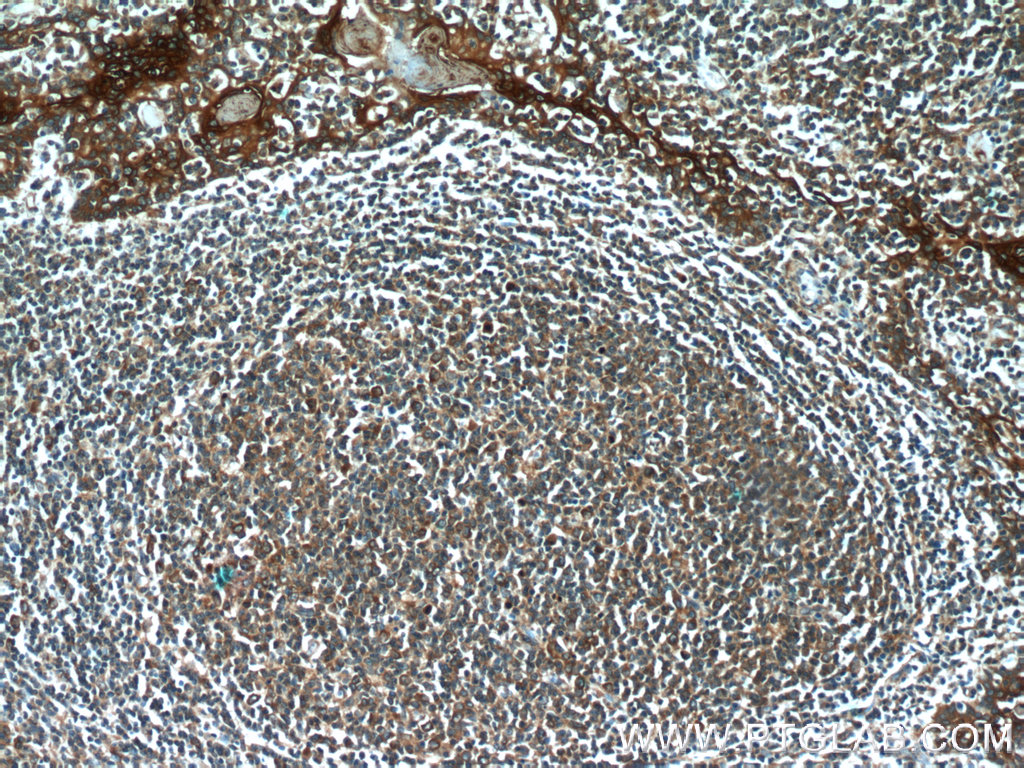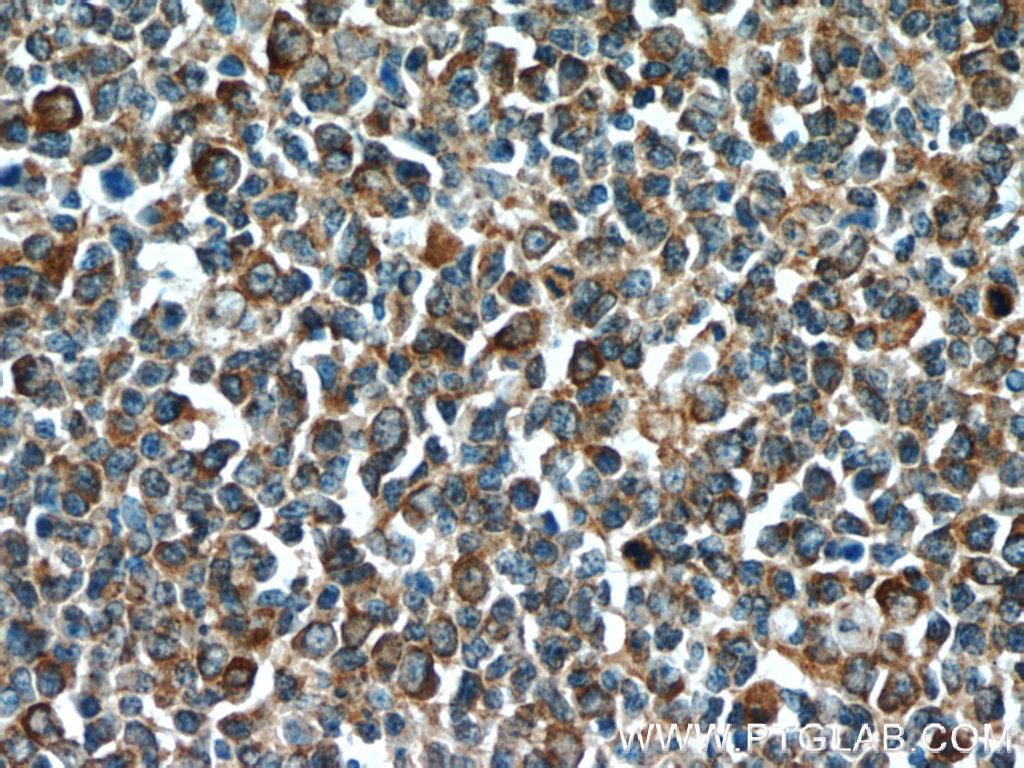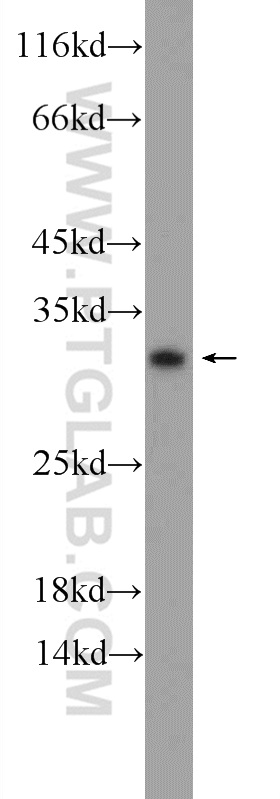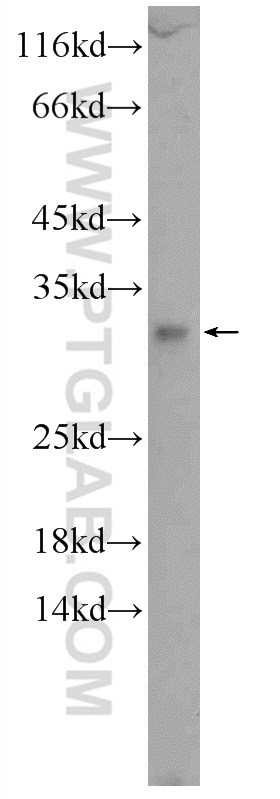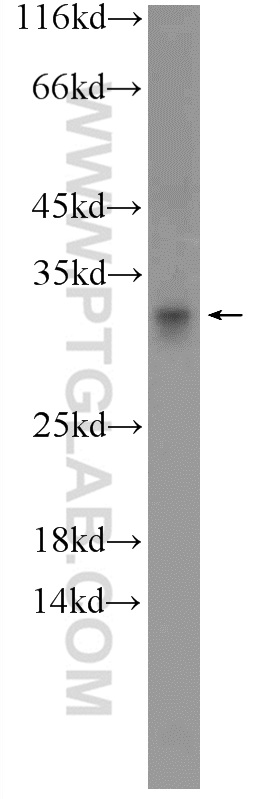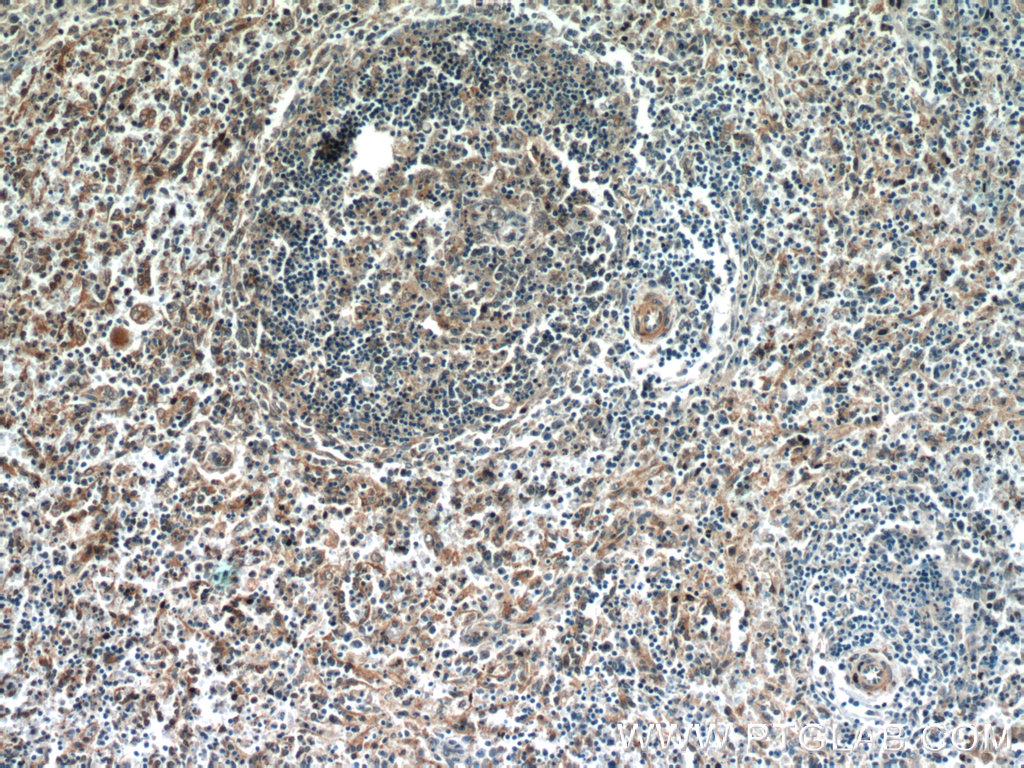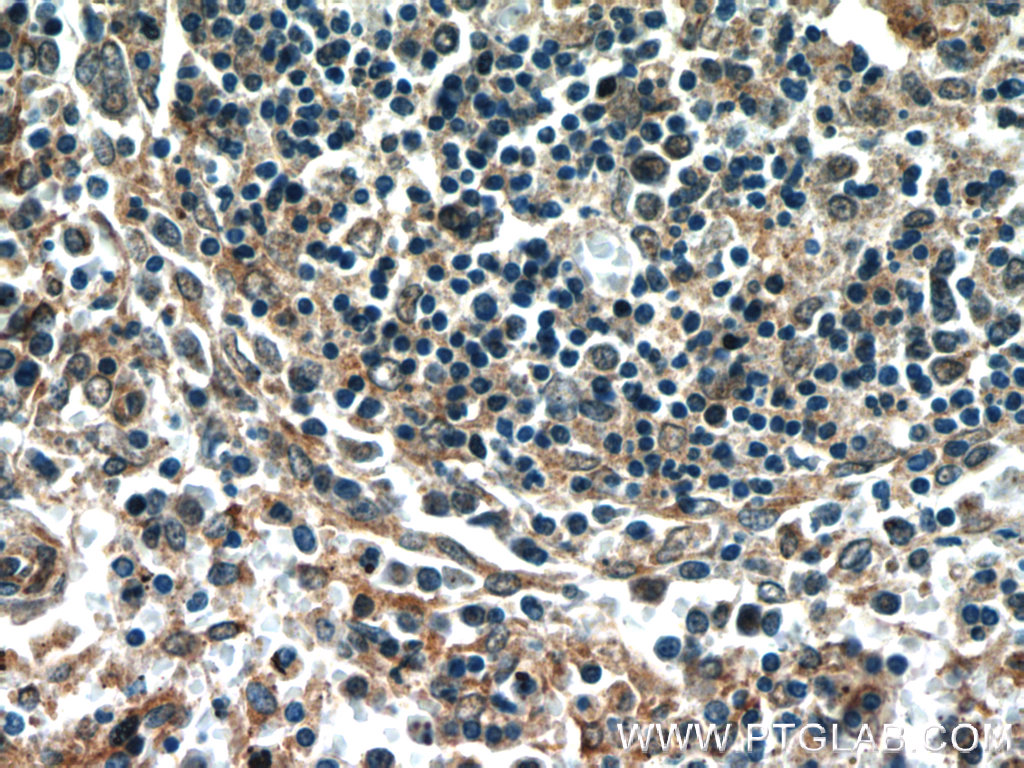验证数据展示
经过测试的应用
| Positive WB detected in | A431 cells, COLO 320 cells, HepG2 cells |
| Positive IHC detected in | human tonsillitis tissue, human spleen tissue Note: suggested antigen retrieval with TE buffer pH 9.0; (*) Alternatively, antigen retrieval may be performed with citrate buffer pH 6.0 |
推荐稀释比
| 应用 | 推荐稀释比 |
|---|---|
| Western Blot (WB) | WB : 1:500-1:2000 |
| Immunohistochemistry (IHC) | IHC : 1:20-1:200 |
| It is recommended that this reagent should be titrated in each testing system to obtain optimal results. | |
| Sample-dependent, Check data in validation data gallery. | |
产品信息
24553-1-AP targets C15orf53 in WB, IHC, ELISA applications and shows reactivity with human samples.
| 经测试应用 | WB, IHC, ELISA Application Description |
| 经测试反应性 | human |
| 免疫原 |
CatNo: Ag18630 Product name: Recombinant human C15orf53 protein Source: e coli.-derived, PET28a Tag: 6*His Domain: 1-179 aa of BC119016 Sequence: MELQGAQEDLGISLSSPRRNHETRPGSKAKGRSSICLQASVWMAGGKLRLRASEHLTQGHQQELRDWNLGEDASLLFSKSPFGAGKLIQAPAHVFRQCWVQGNAWISCITKFDSKRSPEVASSPSYLTVPRRSPLPVFLRPSDRCVCGGCYLGKSTRRRACQSLLSDPLGVTFPTQTRP 种属同源性预测 |
| 宿主/亚型 | Rabbit / IgG |
| 抗体类别 | Polyclonal |
| 产品类型 | Antibody |
| 全称 | chromosome 15 open reading frame 53 |
| 别名 | C15orf53 |
| 计算分子量 | 179 aa, 20 kDa |
| 观测分子量 | ~30 kDa |
| GenBank蛋白编号 | BC119016 |
| 基因名称 | C15orf53 |
| Gene ID (NCBI) | 400359 |
| RRID | AB_2879605 |
| 偶联类型 | Unconjugated |
| 形式 | Liquid |
| 纯化方式 | Antigen affinity purification |
| UNIPROT ID | Q8NAA6 |
| 储存缓冲液 | PBS with 0.02% sodium azide and 50% glycerol, pH 7.3. |
| 储存条件 | Store at -20°C. Stable for one year after shipment. Aliquoting is unnecessary for -20oC storage. |
背景介绍
C15orf53 has been identified on chromosome 15q14. It is probably neither causative for the etiology of BD (Bipolar disorder) nor for SCZD10 (periodic catatonia). Gene expression analysis revealed that C15orf53 was expressed in a subpopulation of leukocytes, but not in human post-mortem limbic brain tissue. In our detection this antibody always detect ~30 kDa band even the amino acids is 20 kDa.
实验方案
| Product Specific Protocols | |
|---|---|
| IHC protocol for C15orf53 antibody 24553-1-AP | Download protocol |
| WB protocol for C15orf53 antibody 24553-1-AP | Download protocol |
| Standard Protocols | |
|---|---|
| Click here to view our Standard Protocols |

